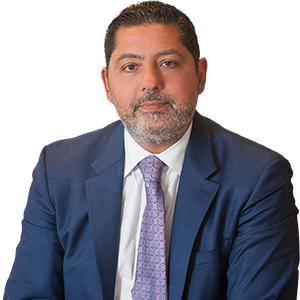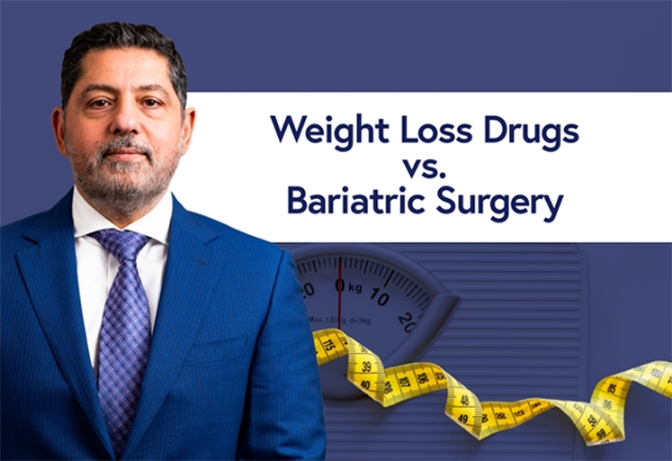Weight Loss Drugs vs. Bariatric Surgery – Which is Right For You?
If you’re trying to lose weight and finding it difficult, you may have considered taking medications or undergoing bariatric surgery. Both of these... read more
Call Us Today (732) 640-5316
E-Waiting RoomGallstones are a common problem, but one that’s easily treatable with any one of a number of laparoscopic cholecystectomy procedures. Cholecystectomy is a minimally invasive treatment and hugely successful when performed by a highly trained and experienced cholecystectomy doctor at Advanced Surgical & Bariatrics of NJ, PA. Serving northern New Jersey and eastern Pennsylvania, the specialists at this New Jersey practice also provide an extensive line of bariatric services to help you lose weight. Your overall health and well-being are tantamount to this professional team of doctors, as they serve you with compassion and care. Call one of our many NJ offices today for an appointment.
Laparoscopic cholecystectomy is a surgical procedure used to remove the gallbladder. In fact, lap cholecystectomy is the only sure-fire way to cure gallbladder problems. It’s minimally invasive and perfectly safe when performed by the internationally recognized experts at Advanced Surgical & Bariatrics of NJ, PA (ASBNJ).
If you’re a woman who is taking estrogen hormones for menopause or who’s had children, you’re more likely to suffer from gallbladder problems than anyone else, including men and other women. Your risk also increases if you’re overweight or over the age of 40, although it’s possible that inflamed gallstones can affect anyone. The first sign your gallbladder is turning problematic is when you start noticing symptoms that include:
The gallbladder is located in the upper part of your abdomen. It’s a pear-shaped organ that helps collect and store bile. Before you dismiss this function as trivial, remember that bile is the liquid that breaks down fats and lipids from food you eat.
Sometimes, though, the bile hardens and forms gallstones. Gallstones can develop in a number of ways, but typically, they’re recognized when they appear in the form of:
To rectify the problem caused by gallstones, your cholecystectomy doctor may suggest that you undergo a minimally invasive laparoscopic procedure, depending on which medical condition requires treatment. The various types of cholecystectomy include:
The staff are very professional and caring. The doctors are amazing and have made my experience with both my surgeries not only worry free but comfortable for me. I was able to express my concerns and questions and had the doctors walk me through the step by step process with ease.
Elena M.Your cholecystectomy doctor at ASBNJ may order an ultrasound to check the severity of the condition. You may also need additional tests to see how well your gallbladder is functioning. The New Jersey experts provide you with the most comprehensive care to ensure you receive the best and most appropriate treatment for your condition.
For six to 12 hours prior to the procedure, you have to refrain from eating. You must also stop taking certain medications, blood thinners and vitamins for a few weeks before the surgery. A laparoscopic cholecystectomy typically is performed as an outpatient procedure while you’re under general anesthesia.
Lap cholecystectomy surgery commonly involves a series of steps that include:
Most laparoscopic cholecystectomy takes about 30 to 60 minutes. There are exceptions, depending on the type of cholecystectomy treatment you receive. For example, radical cholecystectomy requires not just the removal of the gallbladder, but also any surrounding tissues that look cancerous.
You can’t drive your car after laparoscopic cholecystectomy. You may still be groggy from the anesthesia. Most patients leave the same day or at most, after a one-night stay. You can expect some bloating, cramps and even shoulder pain from the carbon dioxide gas for a few days. This is normal, and relief comes as soon as your body absorbs the gas.
Light exercise like walking is recommended in the initial days after the procedure. Your doctor recommends that you drink eight to 10 glasses of water every day. High-fiber foods like beans, whole grain breads, vegetables and fruits are also best to eat in your early recovery period to prevent straining while having a bowel movement.
Under normal circumstances, it can take from one to three weeks before you can go back to work. Just make sure not to lift anything heavy or strain yourself too much. Most people make a complete recovery in four to six weeks. You don’t have to suffer with the pain and discomfort caused by gallstones when a simple procedure performed by highly experienced experts is available near you. Contact Advanced Surgical & Bariatrics of NJ, PA today for a consultation. Learn about your options.

Dr. Ragui Sadek is a premier surgeon who established a state-of-the-art and one of the safest bariatric surgery programs in the state. Dr. Sadek has fellowship training in both laparoscopic/bariatric surgery and surgical trauma/critical care, allowing him to safely perform complex surgeries on patients who have been turned down by other practices. As a Clinical Assistant Professor of surgery at RWJ Medical School & the Director of bariatric surgery program at RWJ University Hospital, Dr. Sadek offers a cutting-edge range of laparoscopic, robotic, & bariatric surgical procedures with a complication rate substantially below the national average.
Dr. Sadek is a Clinical Assistant Professor of Surgery at Rutgers-Robert Wood Johnson Medical School and a Fellow of the American College of Surgeons. Having performed more than three thousand advanced surgical procedures, Dr. Sadek has established a strong patient satisfaction rate and a solid reputation among the surgical community and is renowned as a top physician in his field by International Association of Healthcare Professionals. As a board-certified surgeon, he holds affiliations with the American Society of Metabolic and Bariatric Surgery and the Society of American Gastro Endoscopic Surgeons. More about Dr. Sadek
Stay current with Advanced Surgical & Bariatrics of New Jersey

If you’re trying to lose weight and finding it difficult, you may have considered taking medications or undergoing bariatric surgery. Both of these... read more

Are you frustrated with your inability to lose weight? Tired of being trapped in an endless cycle of yo-yo dieting, over-exercising, cleanses, and... read more